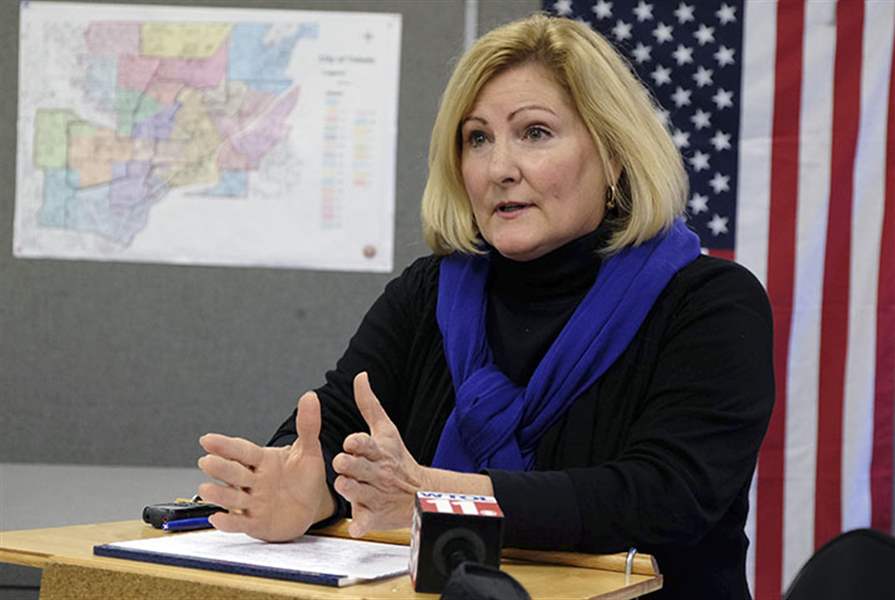
Ohio Democrats propose single-payer health care
10/24/2017
Teresa Fedor is one of two Democrats in the Ohio House of representatives to introduce a bill on single-payer health care Tuesday.
THE BLADE
Buy This Image
COLUMBUS — Even as the Republican-controlled General Assembly has moved to restrict Ohio’s expansion of Medicaid, a pair of Democratic lawmakers Tuesday proposed a single-payer health-care system that would be funded by state taxpayers.
Reps. Teresa Fedor (D., Toledo) and Bernadine Kennedy-Kent (D., Columbus) said they are hoping to start a conversation in Ohio about state-supplied health coverage that everyone not already on Medicaid or Medicare would be eligible for, regardless of income.
Unlike the federal Affordable Care Act, there would ultimately be no role for private insurers within that government-run system. Eventually those who receive their health care via contracts negotiated with their employers would come under the system.
Ms. Fedor said the debate starts with the assumption that health care is a human right.
“The Ohio Health Security Act ensures that all Ohioans have health insurance, meeting the basic needs of all Ohioans and providing affordable health options for our citizens,” she said. “This act allows health care choices to remain private, yet have them publicly funded.”
The bill would create a state agency with regional members that would negotiate prices and pay the costs of medical, vision, and dental treatment.
The debate moves in the opposite direction of where current discussion in Ohio has been headed. During the recent budget debate, majority Republicans succeeded in inserting a provision to freeze — with some exceptions — enrollment into fellow Republican Gov. John Kasich’s controversial expansion of Medicaid under the ACA.
Mr. Kasich vetoed that provision, but there is still talk of a potential override vote.
House Speaker Cliff Rosenberger (R., Clarksville) said he would personally vote for an override, but he gave no indication Tuesday when or if one will occur.
Meanwhile, he doesn’t expect talk of a single-payer system to go far in Ohio.
“I don’t think it’s a conversation that’s gone over well on a national [level], and I don’t think it will go over well here,” he said. “We’ve got to find a way to fix the current system in our country that President Obama put forward in Obamacare.”
This debate also comes against the backdrop of debate in Washington over the long-term fate of the ACA. So far, Congress has been unable to agree on legislation to repeal and replace so-called Obamacare, while President Trump, through executive order, is ending one subsidy to insurers to help cover the costs of patients’ out-of-pocket expenses.
“Yes, it’s going to be publicly funded, and that means taxes,” said Debbie Silverstein, director of Single Payer Action Network Ohio. “But one of the things that people have to understand is we are already paying through taxes about two-thirds of the health care costs of this nation.
“The one third that we’re not paying for is generally healthy people between the ages of 18 and 64 who don’t qualify for programs that the government provides,” she said. “So it’s not that much more to add those people in.”
The bill does not specify a tax source to pay the tab, although Ms. Silverstein said others who have looked at such a system have used employer and employee taxes.
Contact Jim Provance at jprovance@theblade.com or 614-221-0496.